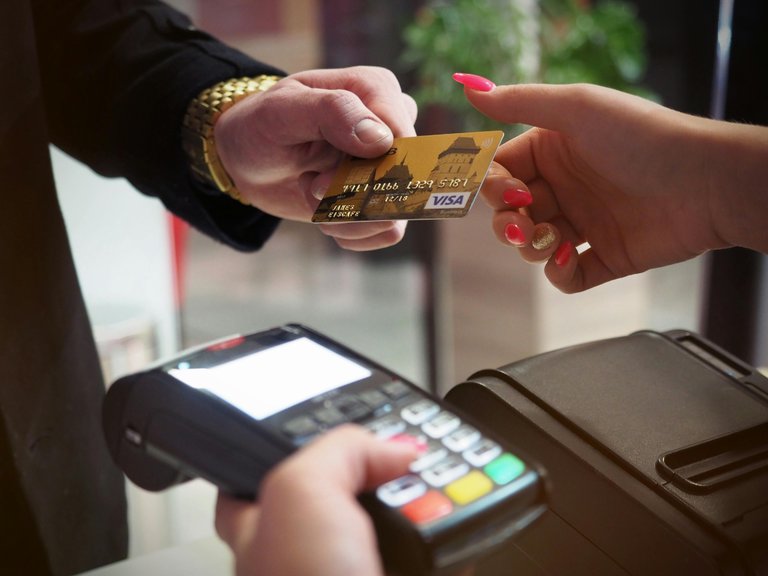There was a viral story on X about a particular brand who almost got his business hijacked by an investor. Did the business run into debt? No. Did they fail to meet the signed agreement with the investor? No, they did meet all conditions and gave returns as agreed. So, then what happened? Read on.

The business owner, a young, hardworking and creative guy who knows everything about starting a food business. The name, the packaging, the ambience of his restaurant, everything was so on point.
At the beginning, he had the idea of what he wanted the business to look like. He calculated the returns he would gain in no time and knew that breaking even in the business will happen within a year because it’s a food business. Food businesses can never run out of customers as long as they serve quality food for their customers.
This business started on a very small scale, but the vision is huge, so he resorted to seeking investors from renowned people in the industry. Of course, investors don’t lose money. They try to understand the vision of the business with the business owner, weigh the future potential of the business, and then decide to invest. If they decide to invest, they lay out their conditions, and it’s on you to decide if you’ll go for it or not.
As a business owner, it is important to be careful of too-good-to-be true investment deals.
Finally, the restaurant owner found a ‘favourable’ deal, signed it and then went about his business, giving feedback and returns as earlier agreed.
One day, this restaurant opened at other branches within the same state using exactly the same name, but with a tad difference. At this point, people started noticing a discrepancy in their services, their goals, and some other things that were not discoverable in time by the customers until the man who owned the business screamed out.
Apparently, the investor was the one who opened the other branches and being renown in the industry, he had access to influencers who would help him with the publicity of the new centers, diverting attention from the main headquarters owned by the real business owner.
The publicity was so strong that it started affecting the real business owner. So, he voiced out.
What happened was that the investor had access to the account of the business and knew the details of the money flow in and out of the business and felt he could get everything to himself if he could have the business to himself, so he offered to buy the business which was met with rejection. Then, he opted for opening other branches and diverting customers from the main branch.
This is a very bad choice of investor from the business owner, but he wouldn’t have known at a point when he was desperate to find investors for his business. It is important as a business owner to know when to seek investors in your business.

At the growing stage, try to use money from personal savings and from friends and family to start your business, and if you must find an investor, try with the commercial banks first, and opt for a loan that you can return within a scheduled time period.
That said, how do you protect yourself from falling into the hands of frauds disguising as investors?
• Diligently conduct your research on the investor. The internet will have the details you need to decide if to go ahead or not, please, make use of it.
• Seek legal advice. If you are seeking an investor in your business, then, you must have money to hire a very good lawyer.
• Find businesses that they’ve invested in and try to speak with the business owners. You most likely will find something.
• Lastly, your gut feelings won’t lie to you even if every other thing or person did. If your gut feeling is firmly against it, then abort mission.
The Spanish version was written using google translate.
Hubo una historia viral en X sobre una marca en particular a la que un inversor casi secuestra su negocio. ¿Se endeudó la empresa? No. ¿Incumplieron el acuerdo firmado con el inversor? No, cumplieron todas las condiciones y dieron las devoluciones según lo acordado. Entonces, ¿qué pasó? Sigue leyendo.
El dueño del negocio, un chico joven, trabajador y creativo que sabe todo sobre cómo iniciar un negocio de comida. El nombre, el empaque, el ambiente de su restaurante, todo estuvo perfecto.
Al principio tuvo una idea de cómo quería que fuera el negocio. Calculó los retornos que obtendría en poco tiempo y supo que el punto de equilibrio del negocio se produciría dentro de un año porque es un negocio de alimentos. Las empresas alimentarias nunca pueden quedarse sin clientes siempre que sirvan comida de calidad a sus clientes.
Este negocio comenzó en una escala muy pequeña, pero la visión es enorme, por lo que recurrió a buscar inversionistas entre personas reconocidas en la industria. Por supuesto, los inversores no pierden dinero. Intentan comprender la visión del negocio con el propietario, sopesan el potencial futuro del negocio y luego deciden invertir. Si deciden invertir, establecen sus condiciones y usted decide si lo hará o no.
Como propietario de un negocio, es importante tener cuidado con las inversiones demasiado buenas para ser reales.
Finalmente, el dueño del restaurante encontró un acuerdo "favorable", lo firmó y luego siguió con su negocio, brindando comentarios y devoluciones según lo acordado anteriormente.
Un día, este restaurante abrió en otras sucursales dentro del mismo estado usando exactamente el mismo nombre, pero con una pequeña diferencia. En este punto, la gente empezó a notar una discrepancia en sus servicios, sus objetivos y algunas otras cosas que los clientes no pudieron descubrir a tiempo hasta que el dueño del negocio gritó.
Al parecer, el inversor fue quien abrió las demás sucursales y al ser reconocido en la industria, tuvo acceso a influencers que lo ayudarían con la publicidad de los nuevos centros, desviando la atención de la sede principal propiedad del verdadero dueño del negocio.
La publicidad fue tan fuerte que empezó a afectar al verdadero dueño del negocio. Entonces, expresó.
Lo que sucedió fue que el inversionista tenía acceso a la cuenta del negocio y conocía los detalles del flujo de dinero que entraba y salía del negocio y sentía que podía quedarse con todo si podía tener el negocio para él solo, por lo que se ofreció a comprar. el negocio que fue recibido con rechazo. Luego, optó por abrir otras sucursales y desviar clientes de la sucursal principal.
Esta es una muy mala elección de inversor por parte del propietario de la empresa, pero él no lo habría sabido en un momento en el que estaba desesperado por encontrar inversores para su negocio. Como propietario de un negocio, es importante saber cuándo buscar inversores para su negocio.
En la etapa de crecimiento, intente utilizar dinero de ahorros personales y de amigos y familiares para iniciar su negocio, y si debe encontrar un inversionista, intente primero con los bancos comerciales y opte por un préstamo que pueda devolver dentro de un plazo programado. período.
Dicho esto, ¿cómo protegerse de caer en manos de estafadores disfrazados de inversores?
• Realice diligentemente su investigación sobre el inversor. Internet tendrá los detalles que necesitas para decidir si seguir adelante o no, por favor, úsalo.
• Busque asesoramiento legal. Si está buscando un inversor para su negocio, debe tener dinero para contratar a un muy buen abogado.
• Encuentre empresas en las que hayan invertido e intente hablar con los dueños de las empresas. Lo más probable es que encuentres algo.
• Por último, tus instintos no te mentirán incluso si todas las demás cosas o personas lo hicieran. Si su instinto está firmemente en contra, entonces aborte la misión.
Posted Using InLeo Alpha

